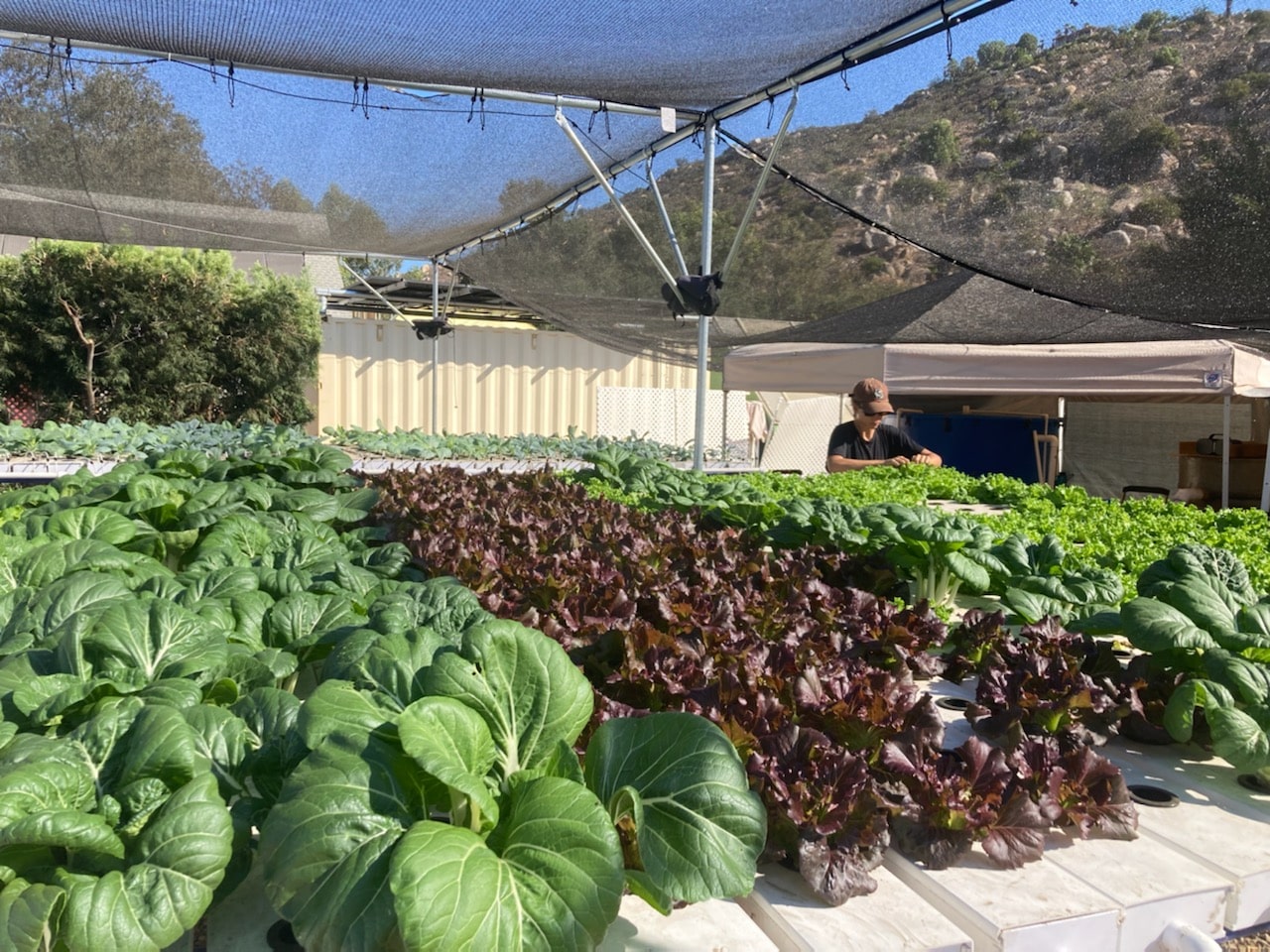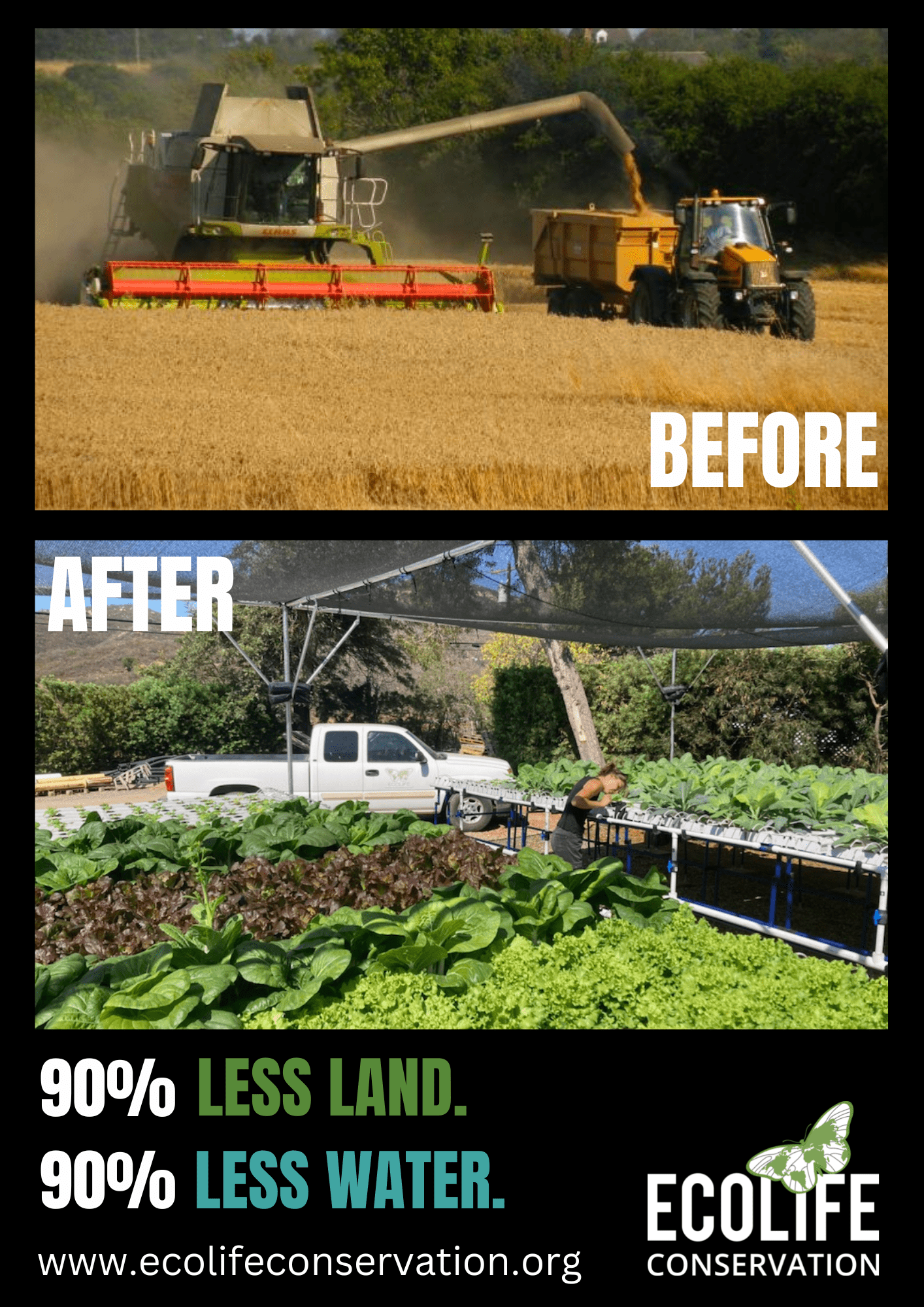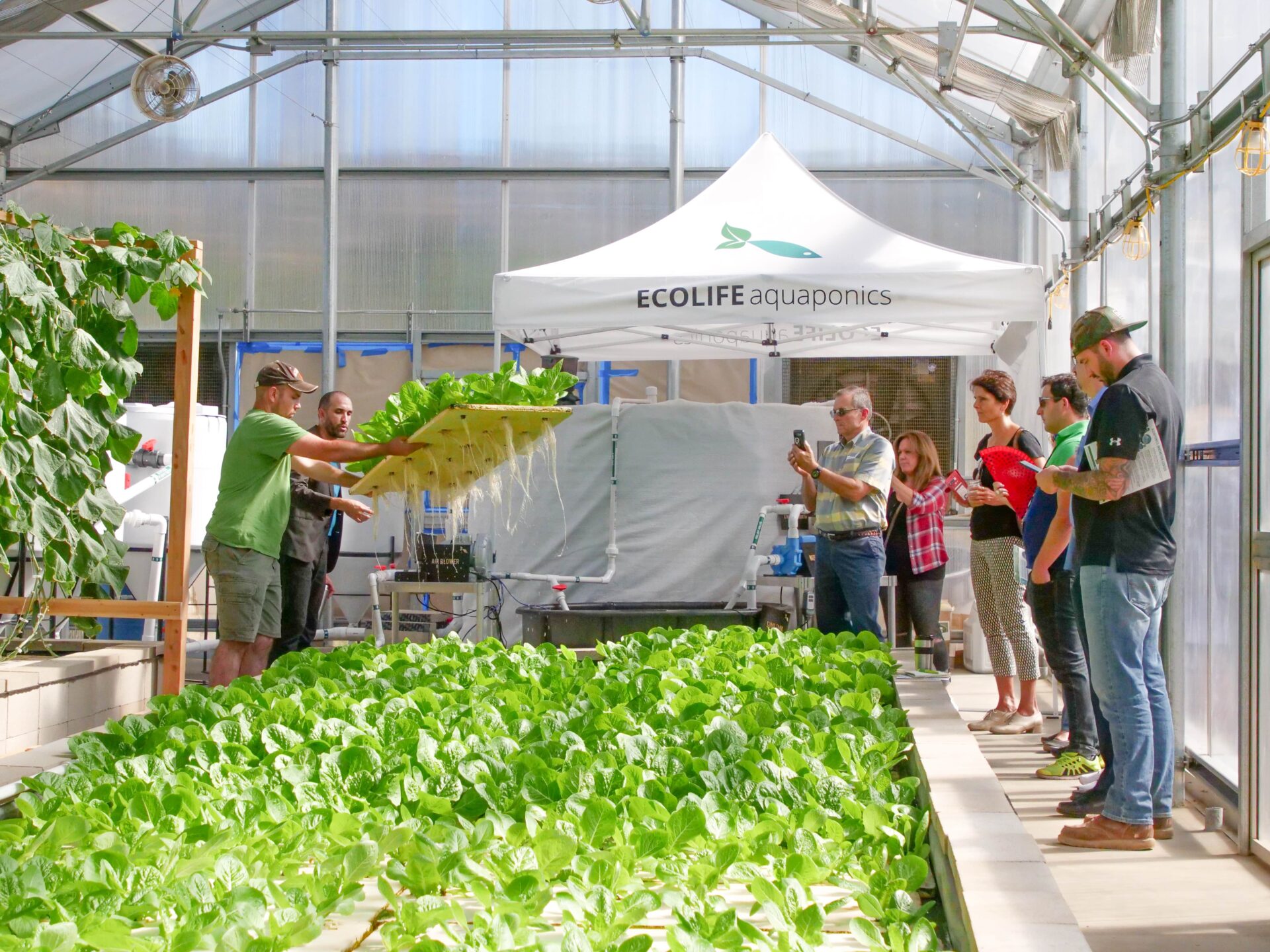Helping Make Communities Self-Sufficient Using Eco Agriculture & Aquaponics

At ECOLIFE Conservation, we know that sustainable practices are the key to a sustainable future. With threats to wildlife and our ecosystems like depletion of natural resources, chemical pollution, and habitat destruction, focusing on eco agriculture and sustainable practices like aquaponics can allow communities to establish healthier, environmentally-friendly food systems. Keep reading to learn more about how our Sustainable Agriculture Program can help communities become self-sufficient without affecting the wildlife or ecosystems around them.
What is Eco Agriculture?
 Eco agriculture, also known as sustainable agriculture, is a practice of growing produce in a way that meets the needs of a community without affecting the ability of future generations to grow their food. There are three main objectives of creating sustainable practices for agriculture: a healthy environment, economic profitability, and social and economic equity. When an agricultural system is sustainable, everyone that’s part of the system plays a role in these sustainable practices.
Eco agriculture, also known as sustainable agriculture, is a practice of growing produce in a way that meets the needs of a community without affecting the ability of future generations to grow their food. There are three main objectives of creating sustainable practices for agriculture: a healthy environment, economic profitability, and social and economic equity. When an agricultural system is sustainable, everyone that’s part of the system plays a role in these sustainable practices.
Common sustainable practices include promoting soil health, minimizing water use, and lowering pollution levels in growing areas. However, creating an effective plan for sustainable agriculture requires more than just following a few practices. It requires working with the people of a community to address issues like working and living conditions, health, safety, and overall food needs. Sustainability also means maintaining, or if possible, enhancing a community’s natural resources so they can continue to meet the community’s needs long term.
A truly sustainable option is fair to workers, promotes equity and justice, makes healthy food accessible to all community members, and puts the needs of people and the community first.
4 Ways Aquaponics Makes Communities Healthier & More Resilient
Since ECOLIFE was founded in 2003, we’ve placed our focus on protecting monarch butterflies. To do this, we’ve chosen to take a community focus, working with communities and individuals to address community needs that affect the habitat of monarch butterflies.
This started with our Patsari stoves, but we also recognize that eco agriculture plays a large role in protecting wildlife and their habitats. To address the need for communities to have sustainable food-growing options, we developed a Sustainable Agriculture Program utilizing aquaponics.
But how does aquaponics help local communities grow more food for more people, making them more resilient to climate and food system changes?
1. More energy efficient
Our aquaponics systems don’t depend on conventional sources of electricity, making them more energy efficient than other agricultural methods. Our Modular Aquaponics Response Kit (M.A.R.K.) systems are solar-powered, so the energy they need to function is clean and renewable.
2. Eliminate chemical pollution and pesticides
 Our M.A.R.K. systems allow us to grow produce without chemicals or pesticides, which not only reduces but eliminates them from the process. This makes the produce grown using aquaponics safer and healthier while protecting our lakes, streams, and watersheds.
Our M.A.R.K. systems allow us to grow produce without chemicals or pesticides, which not only reduces but eliminates them from the process. This makes the produce grown using aquaponics safer and healthier while protecting our lakes, streams, and watersheds.
Even waste produced by fish is converted by bacteria into nitrate, the most accessible form of nitrogen for plants. This nitrate is consumed by the plants and purifies the water for the fish. This creates a closed-loop system that circulates nutrients within the aquaponics system, eliminating runoff.
3. Reduce habitat destruction
Habitat loss is the main cause of species extinction. With agriculture taking up more than 30% of all available land on Earth, it has contributed to the destruction of many habitats that countless species depend on for survival. Our M.A.R.K. systems require 90% less land than conventional methods of agriculture, with a footprint of only 1,200 square feet.
4. Make communities self-sufficient
As climate change leads to increasing food insecurity for communities around the world, our aquaponic systems empower communities to grow food more efficiently while safeguarding natural resources. Healthier food, free from pesticides and chemicals, also means that community health is improved. M.A.R.K. systems provide people with the means to grow nutrient-dense produce and protein-rich fish while using less land and water.
Serving Communities and Protecting Ecosystems With Our Aquaponic Systems
We’ve chosen to focus on using sustainable agriculture to fight extinction because it’s the best way to prevent habitat loss. From the Patsari stove project to our M.A.R.K. system, every move we make benefits both imperiled wildlife and underserved communities. Because time and time again, we’ve seen that carefully chosen changes can have colossal impacts.
Our M.A.R.K. systems will allow us to bring sustainable agricultural benefits to communities around the globe, regardless of their climate or resources. This allows us to help communities thrive while protecting their local ecosystems. Donate today to support our work with aquaponics!